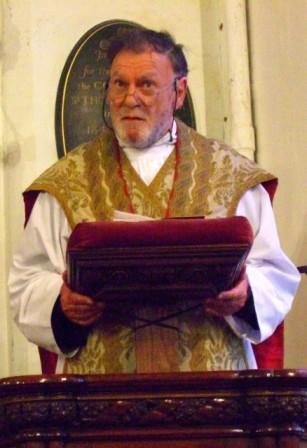Bravo, Father Hunwicke!
 The brilliant Father Hunwicke, whose ecclesiological insights I savour and applaud, hits the nail on the head in what he says about the reform of the Curia and the mushrooming bureaucracies of national episcopal conferences. Father Hunwicke’s Mutual Enrichment is always enriching. I recommend that Father Hunwicke’s essay be read in tandem with Pope Benedict XVI’s Apostolic Letter, issued Motu Proprio, Apostolos Suos.
The brilliant Father Hunwicke, whose ecclesiological insights I savour and applaud, hits the nail on the head in what he says about the reform of the Curia and the mushrooming bureaucracies of national episcopal conferences. Father Hunwicke’s Mutual Enrichment is always enriching. I recommend that Father Hunwicke’s essay be read in tandem with Pope Benedict XVI’s Apostolic Letter, issued Motu Proprio, Apostolos Suos.
The Curia Romana
It is sometimes suggested that, as an alternative to a Church which is pushed around by the Curia, we would be better served by having a much weaker and tinier curia and a lot of very powerful Episcopal Conferences. I find myself entirely out of sympathy with these sentiments. Partly, this is on personal and pragmatic grounds. We, in the Church of England, saw what happened when ‘Provincial Autonomy’ was allowed to ride rough-shod over Doctrine, Tradition, Bible … and even the Dominical Imperative of Unity. It is a thoroughly nasty and miserable experience.
But my main reasons for queasiness are doctrinal.
As Pope Benedict XVI made clear, the Universal Church has both a temporal and an ontological priority (i.e. it came first in historical time and it comes first in the realm of Being) over the local Church. Setting up powerful regional bodies would have a disastrously fissiparous effect on the Church Universal. The promoter of the idea that the local Church has ontological priority, Cardinal Walter Kasper, has made no secret of the fact that he sees his theory as justifying the possibility of different Catholic Regions, as it might be Sophisticated Germany and Primitive Africa, having different disciplines even in matters where discipline and doctrine are indissolubly bound up. Frankly, this is to revisit the question upon which S Thomas More chose martyrdom: whether a portion of the Church Militant has any more right to go against the the whole Church than the city of London has to go against the whole realm of England.
Secondly, such a proposal is ecclesiologically illiterate. There is one Body of Christ, One Catholic Church. It subsists in two modes. There is the Church Universal spread throughout the world. Then there is the Particular Church, Bishop, priests, deacons, people, in one place. This distinction goes back to S Paul, who uses ‘Ekklesiai” in the plural to refer to the local churches, but “Ekklesia” in the singular to refer to the Universal Body of Christ which lies behind, as it were, each local church. Yet the two are one. The Catholica is in the local church, and you cannot participate in the Catholica without participating in your local Church. The whole Body of Christ subsists in the Particular Church. This theological simplicity calls into question any attempt to muddy its waters, unless it is firmly understood that that any ‘groupings’ are merely functional and ad hoc. Powerful regional “churches” introduce a, to me, incomprehensible confusion into the simple teaching of Scripture and Tradition. And they are subversive both of the unique role of the local bishop (with his curia of presbyters and deacons) and of the unique role of the Roman Pontiff (with his curia). I was very pleased when Benedict XVI dropped the title of Patriarch. The Curia Romana, in other words, is in no way lacking in theological garments, while the Episcopal Conference with its bureaucracy, however grand, powerful, and well-paid, is an Emperor entirely without clothes.
Of course, the Bishop of Rome has the right to reorganise how his Curia, that is, his Cardinal Presbyters and Deacons, and their subordinate ministers and helpers, should function. But a reorganisation should not, in my view, happen in a theological void. Nor should it unnecessarily disrespect the already evolved institutions. Non sine Numine facta sunt.
